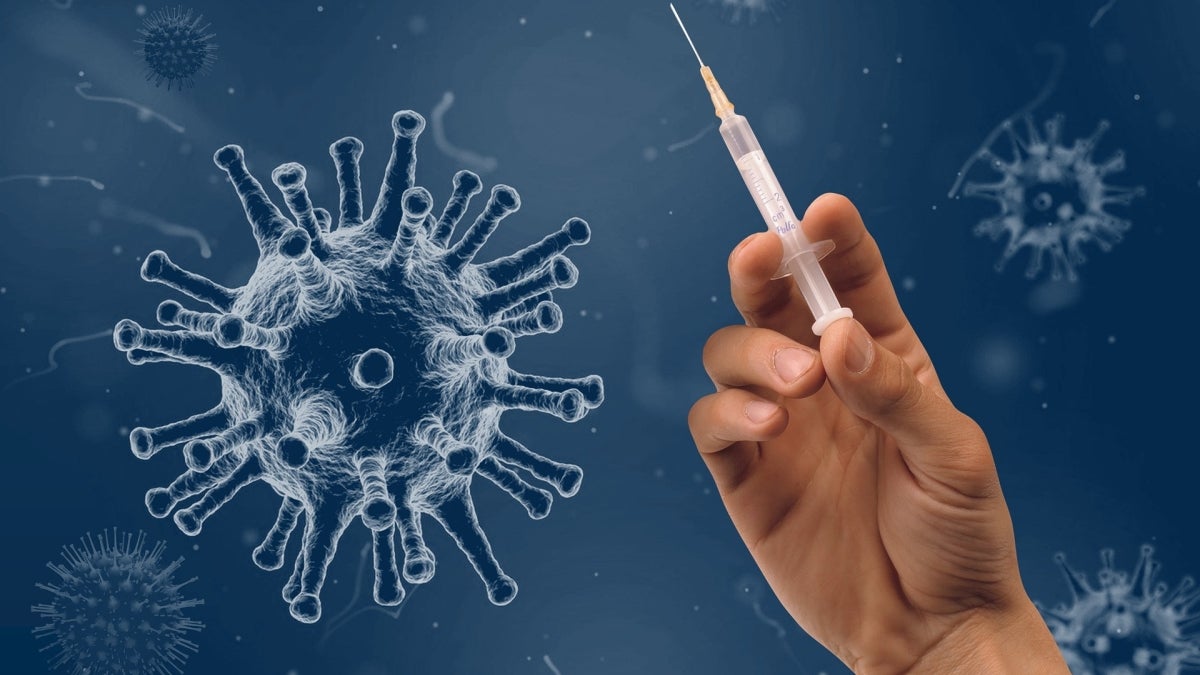Free COVID-19 vaccinations, tests provided at San Carlos Apache tribal locations through ASU partnership

Photo courtesy of Pixabay
Dozens of members of the San Carlos Apache Tribe received free COVID-19 vaccinations and testing this fall through a partnership with Arizona State University.
Tribal residents received the vaccines and tests in several locations on the San Carlos Apache reservation on multiple dates in October and November through the efforts of ASU’s Southwest Interdisciplinary Research Center (SIRC) and Global Center for Applied Health Research (GCAHR); Equality Health Foundation and Help Families in Need; and the San Carlos Apache Tribe Department of Health and Human Services. Vaccines were coordinated by the tribal Department of Health and Human Services through San Carlos Apache Health Corporation, a local hospital.
The team’s visits resulted in administering 85 vaccinations and more than 150 saliva-based tests developed by the ASU Biodesign Institute. Tribal residents also received a limited number of food boxes and backpacks for children, said GCAHR Project Coordinator Shannon Bentley.
SIRC and GCAHR are both based at ASU’s School of Social Work in the Watts College of Public Service and Community Solutions.
The San Carlos Apache Tribal Council approved the partnership in September after ASU researchers presented a vaccination and testing plan the previous month. More than 10,000 tribal members live on the reservation, which spans 1.8 million acres over three counties in eastern Arizona, according to the U.S. Census Bureau.
The Rapid Acceleration of Diagnostics-Underserved Populations initiative of the National Institutes of Health is funding the project’s testing, wraparound services, public health awareness and evaluation components. Community and governmental partners sponsor the vaccination program.
Since November 2020, the grant has supported bringing testing to often difficult-to-reach residents of several underserved Arizona communities. According to GCAHR, many of those tested through the initiative did not have an email address and would not have been able to have access to state-run testing sites. Community health workers have often delivered test results by phone or in person in these areas.
The partnership between the San Carlos Apache Tribe, Equality Health Foundation and ASU provided a unique opportunity to tribal members, said David Reede, executive director of the tribal Department of Health and Human Services.
“Like many communities, our residents have been affected by the coronavirus pandemic, and with the tribe’s aggressive mitigation efforts, testing has been big in our community,” Reede said. “A lot of our tribal members are not keen on having a nasal swab, and because of the partnership between us, we have been able to offer saliva-based testing.”
The partners’ efforts have greatly benefited the community, Reede said.
“Working with the Equality Health Foundation, we were able to provide food boxes and backpacks to those who wanted to take advantage of the saliva-based testing,” he said.
Jacob Moore, ASU associate vice president for tribal relations, noted that the COVID-19 vaccines-and-testing partnership is part of a relationship dating back to at least 2014, when the tribe and the university created a memorandum of understanding.
"The San Carlos Apache Tribe and Arizona State University entered into a broad memorandum of understanding in 2014 to find ways to collaborate with each other. The relationship with the San Carlos Apache Tribe, based on mutual trust, aligns with ASU’s charter that includes 'assuming fundamental responsibility for the economic, social, cultural and overall health of the communities it serves,’” Moore said. “This COVID pandemic response collaborative is a prime example of the type of work that breathes life into this commitment.
“The ASU Global Center for Applied Health Research and Equality Health Foundation have been profoundly effective in assisting tribal nations to mitigate COVID-19 adverse impacts, in a culturally responsive way, and stands ready to respond to future opportunities with other tribes, as well,” Moore said.
Regents Professor Flavio Marsiglia of the School of Social Work is GCAHR’s director and principal investigator of the COVID-19 project. He said that working with the tribe was an honor for him and the center staff.
“We appreciate the warm welcome our team has received from the tribal leadership, staff and the community at large,” Marsiglia said. “We look forward to a lasting partnership.”
More Health and medicine

Fighting the fungus among us
It starts with a spore.When inhaled, spores of the coccidioides fungus can cause coccidioidomycosis — better known as valley…

$5 million gift to provide scholarships for new ASU medical school students
A $5 million gift from longtime Arizona State University donor Annette Beus and her family will help provide scholarships for 72…

The science of sibling dynamics: Why we fight, how we relate and why it matters
We have Mother’s Day, Father’s Day and even Grandparents’ Day. But siblings? Usually they get a hand-me-down sweatshirt and, with…

